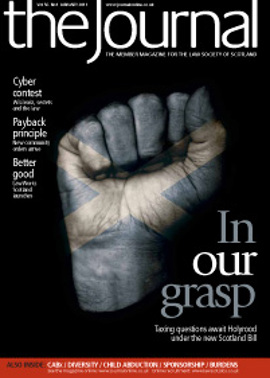Money talking

Sponsorship is an interesting word. Most of us encounter it when an email arrives in our mailboxes from a friend, relative or colleague announcing their participation in some physical endeavour and asking us to donate to a particular cause. This is a wonderful method of fundraising, but we are in essence being asked for money and in return are offered nothing more than that warm fuzzy feeling of helping those less fortunate than ourselves.
When we translate that into a corporate context, and to corporate sponsorship, many people have a similar mindset to that described above. Perhaps this is where the sponsorship industry is at fault, because corporate sponsorship is not just about giving – it is about giving and receiving. What is more, for most businesses, sponsorship is able to achieve a variety of objectives in a more impactful and cost-efficient way than more traditional marketing activities.
The key to good sponsorship is to ask yourself three key questions:
- Who is your target audience?
- What are you trying to say to this audience, and what are you trying to achieve with them?
- How will you measure success?
Target audiences
Most businesses know something about their customers, but are they really your only audience? What about those individuals who refer business to you such as accountants or IFAs? These are also your stakeholders and could be positively influenced by your sponsorship activities.
Even outside this “supply chain” you should also consider wider audiences such as regulators, journalists and other influencers in the legal sector. Sponsorship activities have the capacity to reach out to a variety of different individuals and provide a solid platform on which to build engagement with these harder-to-reach audiences. While you should not attempt to target everyone through one project, defining exactly which audiences you are targeting should be given proper consideration.
Once you have clarified in your own minds exactly which audiences you are trying to reach, you are then able to research their geographic distribution, demographics and their particular passions. These form one dimension of successfully selecting the right sponsorship programme.
Your objectives
Sponsorship is a part of your wider marketing mix; it provides a platform for engagement, branding and commercial returns, and it has the potential to transfer its brand values to your business. Therefore, decisions regarding what any company chooses to sponsor need to follow the same process as any other marketing decision: they need to be strategic and you need to know precisely what you are trying to achieve.
The diagram on the right indicates the three core types of sponsorship objectives and should be used to interrogate the organisation on precisely what it is you are trying to achieve. This can be brand led (whether that be about altering perceptions or increasing consideration), engagement based (business-to-business, employee or community relations), or commercially orientated (such as winning new business). If you have primarily brand based objectives, then you are likely to want a sponsorship that gives you visual crediting opportunities, that aligns your brand with that of the sponsored organisation and gains some media exposure that your audiences are likely to see. Similarly, if you are looking to build relationships with specific groups, then you will be looking for engagement opportunities where you can speak directly to your audiences, invite them to events etc.
Evaluation
Sponsorship is often blamed for being less measurable than advertising (or indeed, impossible to measure). However, if you set clear and “SMART” objectives at the outset, evaluation of the outcomes from sponsorship becomes transparent. Specific, Measurable, Achievable, Relevant and Timebound objectives help to keep focus on the goals you are trying to achieve and should help to ensure that you concentrate resources accordingly.
The focus for sponsorship evaluation is often to review the return on investment (ROI), which is usually undertaken by measuring data such as media coverage or new business wins. There is sometimes a place for this, but only if it is linked to one of your key objectives. The power of sponsorship is to achieve returns for a broad range of objectives and therefore a more important measure is the return on objectives (ROO).
For example, a sponsorship might be undertaken to develop relationships with accounting professionals in order to achieve more referrals. This could be measured by research among this group before, during and after the implementation of a sponsorship to see how their opinion of your firm has altered. It could also be measured by tracking referral rates historically and into the future.
In essence therefore, the key to measuring returns from a sponsorship is again focused on what you are trying to achieve.
Sponsorship selection
If you were trying to sell the latest Lady Gaga album, then you probably would not place advertising in the Financial Times simply because the boss of the record label reads it! In exactly the same way, you should not choose a sponsorship based on one person’s passion and yet, as sensible as that may seem, lots of companies fall into this trap.
When selecting a sponsorship platform you need to consider your audience and your objectives, but you must also bear in mind your brand values, how your business is perceived and the message you want to convey. When individuals make a buying decision about legal representation, they want somebody reliable and trustworthy – so a high-risk project like motorsport might not be suitable.
Similarly however, if you are a new and young partnership challenging the traditional thinking of the older firms, then 18th century portraiture might not be the best fit for your brand. Choose an association that is relevant to your business, and a project that will reach your audiences, resonate with your brand personality and deliver on your objectives.
In summary therefore, whether you are a multinational firm or a local partnership, sponsorship may be a much more powerful tool to really engage with your audiences than anything else in the marketing mix. Provided it is well selected and focused on clear objectives, sponsorship can be proven to deliver real returns for your business.
Case Study: Morisons LLP
Morisons LLP is a progressive law firm with offices in Edinburgh and Glasgow. It has built its reputation on approaching issues from the clients’ perspective, and its sponsorship activities are aligned completely with their business activities.
Falkirk Rugby Football Club has been promoted six times in the past seven seasons and, as such, was an appealing brand fit for the firm. In addition, rugby was found to fit Morisons’ target audience perfectly. The sponsorship delivers a range of opportunities for the firm including branding, hospitality and engagement with audiences and, most importantly, it adds to the bottom line of the business.
Peter Duff of Morisons LLP said: “Sponsorship by any business in these financially difficult times is not something we do lightly. We have identified something in Falkirk RFC’s approach to achieving the top spot in Premier One that reflects our own philosophy in business.”
The success of Morisons’ rugby sponsorship has led the firm to consider other sponsorship opportunities as well. Recently, Morisons announced a three-year deal with Scottish golfer John Gallagher, the touring professional at Swanston Golf Club and the 2007 Scottish Amateur Champion. Again, this sponsorship is designed with specific business objectives in mind and will link in to a forthcoming business development strategy of the firm.
In this issue
- Prison accommodation for transgender people
- Challenge of the new
- An issue that will not die
- Revolution in the making
- Sasine service
- The welfare imperative
- War on the web
- Payback time
- Diverse means
- Good and better
- Help where it's needed
- Appreciation: Elaine Tyre
- Forum discusses EU contract law
- Law reform update
- Time to take the plunge?
- Ask Ash
- Money talking
- Cut the risk of harm
- Trust rewritten
- Promoting responsibility
- Fathers made relevant
- Tread warily: habitats
- Forum at the frontiers
- Website review
- Book reviews
- Signs of the times






